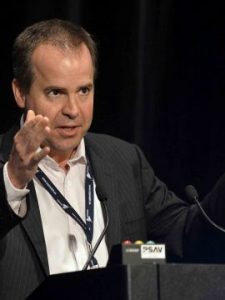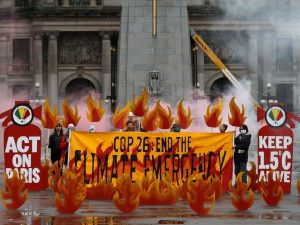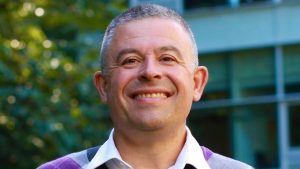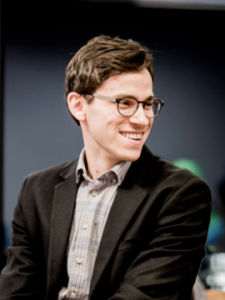Prof. Kathryn Harrison spoke about thermal coal exports in Canada via CBC News
Metallurgical (or coking) coal is used in steel production. However, there are not many cleaner and affordable alternatives available for steel production. “That’s why most national and global modelling exercises looking at climate action [and] carbon constraints find that thermal coal is the first to go: It’s emissions intensive and there are cheaper alternatives,” said Dr. Kathryn Harrison.
Prof. Kathryn Harrison talks to CBC on how to identify substance in climate change policy discussions
“Net zero is an increasingly prevalent concept that can hide all manner of sins,” Prof. Kathryn Harrison said. “Some countries are committing to net zero in the distant future but not backing it up with more near-term reduction commitments, which are needed for that to be credible.”
Prof. Michael Byers: We must ban anti-satellite weapons testing to stop space from becoming a minefield
Debris in low Earth orbit is like fast-moving shrapnel that endangers the systems we use for communication, navigation and research. Let’s not allow international militaries to make such a mess, writes Prof. Michael Byers and Aaron Boley in Globe and Mail.
Prof. Yves Tiberghien: The good, the bad and the incongruous at the Rome G20
“The G20 is currently unable to function as the incubator for the reform of global governance institutions that the world needs to manage global markets and pressing systemic risks,” Prof. Yves Tiberghien writes in East Asia Forum.
Prof. Kathryn Harrison discussed what she will be watching for at COP26
Dr. Kathryn Harrison comments on how poor countries suffer as rich countries miss climate targets. She will be writing opinion pieces from the COP26 Climate Change Conference in Glasgow.
Prof. Yves Tiberghien comments on how vital is it for china to be on track to meet carbon targets despite challenges
“China is part of the problem but also part of the solution. China has pushed the envelope on renewable energies. For example, the cost of solar panels have dropped by 90% over the last ten years due to massive investment by China,” said Professor Yves Tiberghien.
Prof. Carey Doberstein wins Policy & Society 2020 Best Paper Award
Doberstein’s co-authored article, “Understanding inclusion in collaborative governance: a mixed methods approach,” proposes a conceptual model to shape the empirical analysis of what contributes to inclusion in collaborative processes
Prof Paul Quirk says Donald Trump could attempt to overturn the results of the 2024 election if he runs again
“If nothing else, [Trump] can use his candidacy to undermine the various prosecutions that he may be facing,” Professor Quirk said. “If his Plan A is to win 271 votes in the Electoral College, his Plan B may be to win at least one vote of a juror in any criminal trial.”
Professor Kathryn Harrison comments on IEA report’s grim future for Canadian fossil fuel industry
“The fact is our oil is lower in quality, which means it’s both more emissions intensive and costly to produce and … refine at destination. We’ve got a lot of disadvantages in a shrinking market for oil,” said Kathryn Harrison
Broadcaster Jody Vance says she feels relief after suspect arrested following years of online harassment
Postdoctoral Researcher Chris Tenove said journalists routinely face three types of harassment: unwanted attention from obsessive fans aspiring to form a relationship, partisan or politically motivated insults, and blowback from the general toxicity present on social media platforms.









